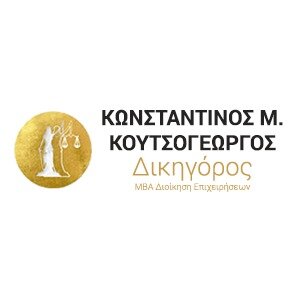Best Project Finance Lawyers in Greece
Share your needs with us, get contacted by law firms.
Free. Takes 2 min.
Or refine your search by selecting a city:
List of the best lawyers in Greece
About Project Finance Law in Greece
Project Finance in Greece refers to the legal and financial structuring of major projects, typically involving the development of infrastructure such as roads, energy facilities, telecommunications, and public services. Under this model, debt and equity used to finance the project are paid back from the cash flow generated by the project itself, rather than the general assets or creditworthiness of the project sponsors. Greece, as a member of the European Union, aligns its regulatory framework with EU norms, making project finance an attractive method for both domestic and international investors. The Greek government actively encourages investments through various public-private partnerships, making understanding Project Finance Law essential for participants.
Why You May Need a Lawyer
Engaging a lawyer experienced in Project Finance is vital due to the complexity and value of these transactions. Common situations where legal help is needed include:
- Structuring joint ventures and consortia for large-scale projects.
- Negotiating and drafting project contracts, such as loan agreements, construction contracts, and concession agreements.
- Navigating regulatory requirements and securing necessary permits from government authorities.
- Assessing project risks, including environmental, operational, and financial risks.
- Managing disputes or claims that arise during the development or operational phase of the project.
- Ensuring compliance with both Greek laws and EU regulations affecting infrastructure and energy projects.
Local Laws Overview
Key aspects of Greek local laws relevant to Project Finance include:
- Public-Private Partnerships (PPP) Legislation: Greek Law 3389/2005 governs PPP projects, outlining how private entities can collaborate with public authorities for project development and operation.
- Concessions Law: Law 4413/2016 regulates concession contracts, which are essential in infrastructure financing.
- Securities and Collateral: Greek Civil Code and special legislation govern security interests, vital for securing lenders’ rights in project assets.
- Permitting Environment: Projects, especially in energy or construction, require numerous permits and approvals under national and EU frameworks.
- Environmental Laws: Projects must comply with Law 4014/2011 regarding environmental permitting, as well as additional EU environmental directives.
- Bankruptcy and Insolvency: The new Greek Insolvency Code (Law 4738/2020) can impact lenders’ rights and project continuity in case of default or restructuring.
- Currency, Tax, and Bank Regulation: Foreign investments and transactions are subject to controls under Bank of Greece rules and relevant tax legislation.
Frequently Asked Questions
What is Project Finance and how does it work in Greece?
Project Finance is a funding structure where repayment depends on the cash flow generated by the project, not the general assets of the sponsors. In Greece, this approach supports large infrastructure, energy, and development initiatives involving both private and public stakeholders.
Who are the typical participants in Greek Project Finance deals?
Common participants include sponsors (usually private companies or consortia), lenders (often banks or financial institutions), the Greek state or local governments, contractors, and suppliers.
What are public-private partnerships (PPPs) in Greece?
PPPs are collaborations between government bodies and private entities to design, finance, build, and operate major infrastructure or public service projects. Greek PPPs are subject to specific legislation ensuring risk-sharing and clear contractual frameworks.
What types of projects are commonly financed in this way in Greece?
Examples include motorways, renewable energy plants, hospitals, waste management facilities, schools, and port developments.
How are risks managed in Greek Project Finance structures?
Risks are allocated among parties by using detailed contracts covering construction, operation, finance, and maintenance. Insurance and security arrangements are commonly put in place to reduce financial exposure.
Do foreign investors face special requirements in Greek Project Finance?
Foreign investors are welcomed and face similar requirements as domestic participants. However, they may need specific approvals or need to meet certain criteria, particularly for defense or critical infrastructure projects.
What security can lenders take in a Project Finance transaction?
Lenders can secure their interests by taking pledges over project assets, shares, accounts, and concession rights, as provided for by relevant Greek law.
What regulatory approvals are typically required?
Approvals can include environmental permits, building licenses, energy operation permits, and other sector-specific authorizations, depending on the project type.
Is there government support or incentives for project finance in Greece?
The Greek government offers incentives such as state guarantees, co-financing, and favorable tax treatment for priority projects, especially those aligned with EU funding programs.
How can I resolve disputes arising from a project finance deal?
Most contracts stipulate out-of-court dispute resolution, such as arbitration or mediation. Greek courts are also available for litigation, and international arbitration is increasingly chosen for complex or cross-border projects.
Additional Resources
For more information and guidance, the following resources and organizations may help:
- Ministry of Development and Investments - oversees investment policies and PPP projects.
- Public-Private Partnership Secretariat - supports the development and management of PPPs.
- Regulatory Authority for Energy - regulates energy sector projects.
- Bank of Greece - provides guidance on financial regulations affecting project finance structures.
- Chamber of Commerce and Industry - offers advice for businesses entering the Greek market.
- Major Greek law firms and consultancies specializing in Project Finance.
Next Steps
If you are considering involvement in a Project Finance transaction in Greece, it is important to take the following steps:
- Carefully define your project objectives and gather all relevant project details and financial information.
- Contact a Greek lawyer with proven experience in Project Finance law to assess your needs and the potential legal complexities.
- Arrange a consultation to discuss regulatory requirements, contractual structures, and risk management strategies suited to your project.
- Collaborate with your lawyer to review and negotiate all key contracts and to liaise with relevant authorities for permits and approvals.
- Continue to seek legal advice as your project progresses to ensure compliance and address any issues that arise.
Lawzana helps you find the best lawyers and law firms in Greece through a curated and pre-screened list of qualified legal professionals. Our platform offers rankings and detailed profiles of attorneys and law firms, allowing you to compare based on practice areas, including Project Finance, experience, and client feedback.
Each profile includes a description of the firm's areas of practice, client reviews, team members and partners, year of establishment, spoken languages, office locations, contact information, social media presence, and any published articles or resources. Most firms on our platform speak English and are experienced in both local and international legal matters.
Get a quote from top-rated law firms in Greece — quickly, securely, and without unnecessary hassle.
Disclaimer:
The information provided on this page is for general informational purposes only and does not constitute legal advice. While we strive to ensure the accuracy and relevance of the content, legal information may change over time, and interpretations of the law can vary. You should always consult with a qualified legal professional for advice specific to your situation.
We disclaim all liability for actions taken or not taken based on the content of this page. If you believe any information is incorrect or outdated, please contact us, and we will review and update it where appropriate.
Browse project finance law firms by city in Greece
Refine your search by selecting a city.

















